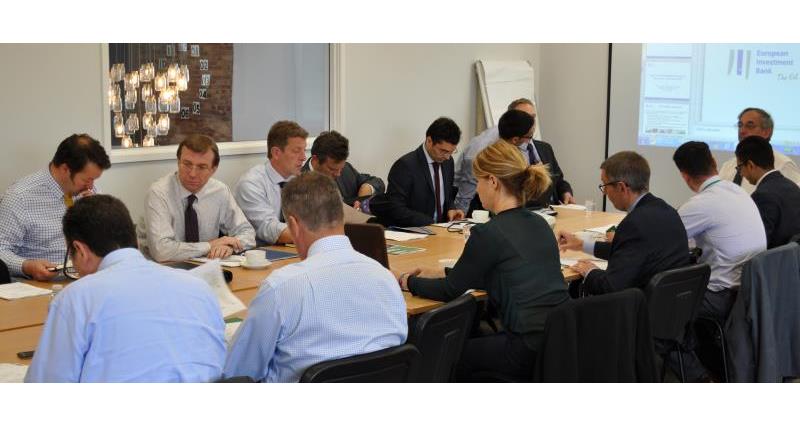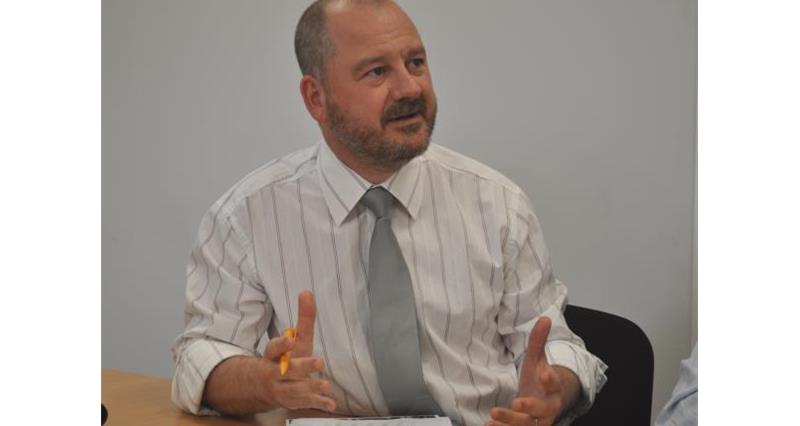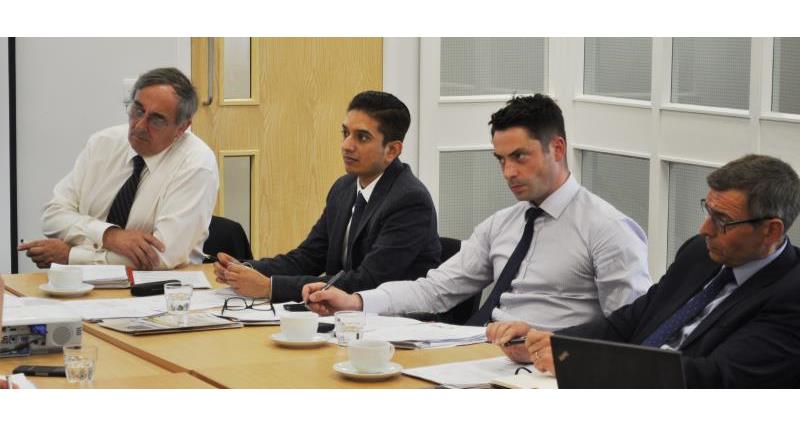Representatives from HSBC, Lloyds, Barclays, RBS, Natwest, Clydesdale, AMC, EIB and Defra were all in attendance at the meeting Thursday 30 June.
Key subjects covered in the meeting included:
European Investment Bank (EIB)
The meeting explored the opportunity to increase investment in British agriculture through the use of financial instruments. The focus was on understanding current funding opportunities which are currently being under-served potentially due to their risk profile which is commercially unacceptable for private investors.
Through pooled investment or the use of loan guarantees supported by public funds, there may be potential to increase the commercial viability of new innovative projects in agriculture. The representative was Frank Lee who is the European Investment Bank Head of Financial Instruments.

European Referendum
NFU President Meurig Raymond said: “The vote to leave the European Union will inevitably lead to a period of uncertainty in a number of areas that are of vital importance to Britain’s farmers.
“The NFU will engage fully and constructively with the British government to construct new arrangements. This needs to happen as soon as possible. Our members will rightly want to know the impact on their businesses as a matter of urgency.
"We understand that the negotiations will take some time to deliver but it is vital that there is early commitment to ensure British farming is not disadvantaged. It is vital that British farming is profitable and remains competitive, it is the bedrock of the food industry – Britain’s largest manufacturing sector.
“The NFU has called an extraordinary meeting of NFU Council, its governing body, on Friday July 1 2016."
BPS
Richard Wordsworth (NFU Senior BPS Adviser) gave those present an update on BPS issues at this time. This included a run through the current payment performance of the RPA in clearing remaining claims yet to receive a full BPS payment and also the prospects for the swift completion of corrective work to top up wrong full payments issued to date.
The NFU has carried out a huge amount of lobbying on behalf of its members on BPS issues in recent months, with a key focus of getting BPS back on track for 90% payments out in December this year for 2016, that also means clearing the residual 2015 issues.
Agri-environment
The vote to leave the EU has created uncertainty for members currently in agri-environment schemes or considering applying for a new scheme.
Meurig Raymond has asked Government for reassurance on the future of agri-environment schemes. In reviewing the current situation Claire Robinson, NFU Countryside Adviser, said that the NFU is still trying to resolve outstanding 2015 agri-environment payments.
Many of these are delayed following an inspection in 2015. Looking to 2016 payments, we’ve not been given any timescales by Natural England. As in previous years, agri-environment payments cannot be made until cross checks with BPS claims have been completed.

National Living Wage (NLW)
NFU Chief Horticulture and Potatoes Advisor, Chris Hartfield (pictured above), updated the UK banks on impact of National Living Wage on horticulture.
The NFU is fully supportive of a living wage for all workers in the agricultural industry. But, we need government recognition that NLW will have a huge impact on this sector, particularly for labour-intensive crops such as hand-picked fruit and vegetables where labour costs can be as high as 70 per cent of turnover.
The introduction of the National Living Wage will increase the cost of seasonal wages for grower businesses by 35 per cent over the period 2016-2021, equivalent to an average annual wage inflation of just under 7 per cent per year, significantly more than the 2.5 per cent annual rate of wage inflation growers reasonably expected to take place over the next few years.
On cashflow and banks' support
Meurig Raymond re-emphasised that cashflow situation remains acute in the industry and the NFU has been working directly with the banks to ensure a positive dialogue continues in the face of external factors, outside of our control, which are having an impact on farmers’ bottom lines.
